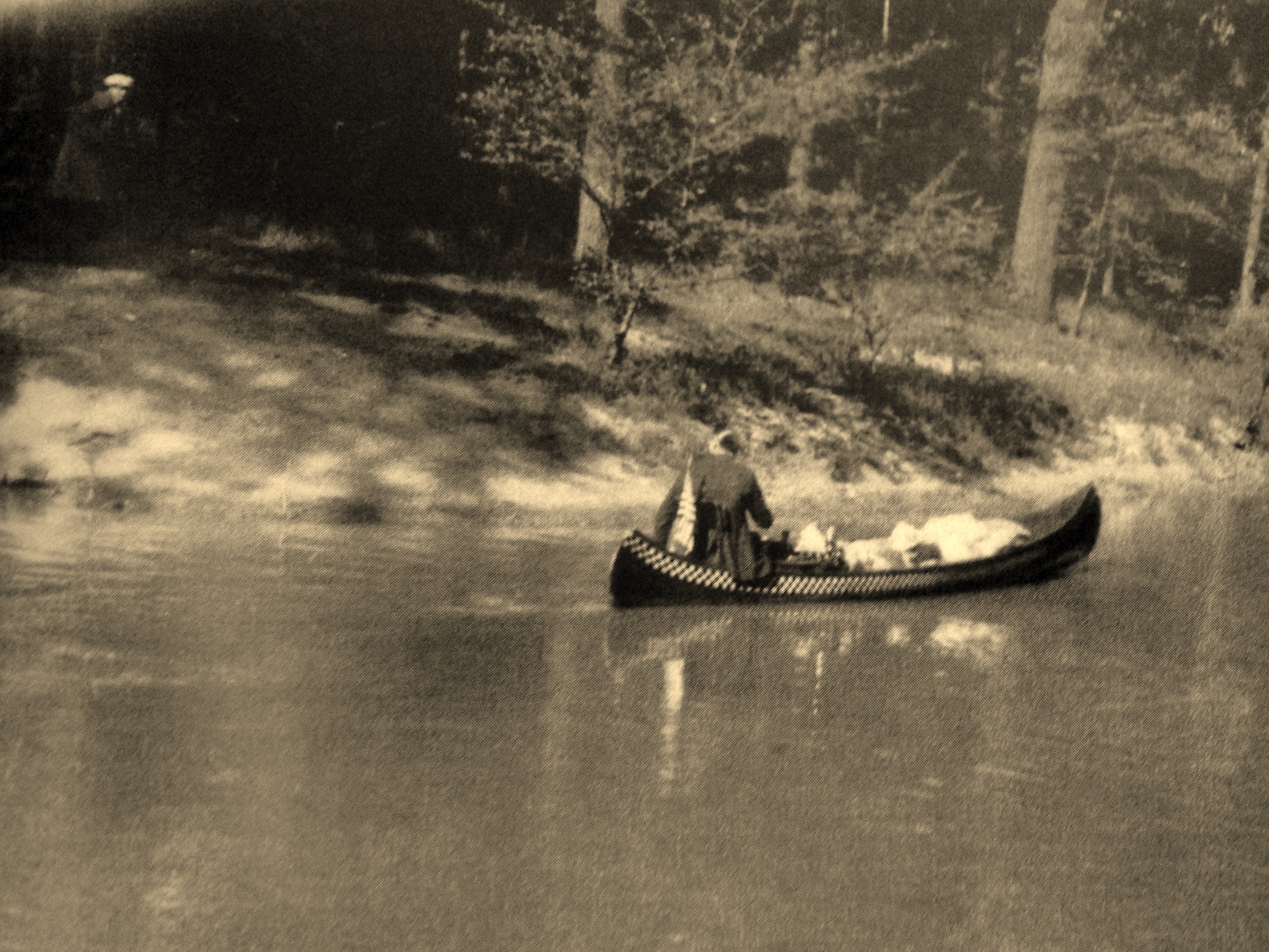
Canoeing on Alpena’s Thunder Bay River in 1928
Long before the coming of the first settlers to the Alpena area, three Native American tribes representing the Ottawa, Chippewa, and Pottawatomie had several villages in the Alpena Area.
The small band of Ottawa lived in a little village named “An-a-ma-kee”, meaning “The Thunder”, located on the Thunder Bay River, which was called “An-a-ma-kee-zebe”. The Ottawa chief was named Mich-e-kee-wis, or “Spirit of the Wind”. Chief Mich-e-kee-wis was greatly admired by his people, and lived to be 110 years old.
The Native Americans called our Lake Huron bay “An-a-ma-kee”, which meant Thunder Bay. Old legend tells that this is because the waters of this bay were peculiarly affected by electrical storms. It has also been suggested that the name came from the thundering sound made by the waves plunging into rock at a point extending into the bay, which was called “Aw-pe-na-sing”, meaning Partridge Point.
The story of our current name “Alpena” actually begins shortly after Michigan became a state in 1837. Mr. Douglas Houghton was assigned the task of surveying the northern part of the state and establishing county and township lines. In 1840, after Houghton’s task was completed, Henry Schoolcraft, then a Native American agent in Sault St. Marie, selected an Indian name for each county. However, an analysis of these county names show that in many instances “improvised” would have been a better word than “selected”.

“An-a-ma-kee” means “Thunder Bay” Photo courtesy Paul Gerow
Alpena County was first dubbed “An-a-ma-kee”, (Thunder), in honor of the Thunder Bay Chippewa chief who had signed a treaty negotiated by Schoolcraft in 1826. After studying the Indian legends around the words “An-a-ma-kee” and “An-i-mi-kee”, Schoolcraft concluded that the name was not completely appropriate. He manufactured the name “Alpena” from “Al”, a Native American syllable meaning “the”, and then created “pena” from either the Arabic word meaning “partridge”, or an old French word “peanaisse”, meaning “bird”.
Local historians have since discovered that the rendering should have been “Awpena” to mean “partridge”. As Alpena is now spelled, it means “not quite a partridge”. Awpena, Alpena, either way, we love our Sanctuary of the Great Lakes and are proud of our heritage!
*Derived from Catherine Marie Huston Herron’s essay “A History of the Place Names of Alpena County”





 420 N. 2nd Ave. Alpena, MI 49707
420 N. 2nd Ave. Alpena, MI 49707 989-340-2288
989-340-2288 